Interview With Gayle Brandeis
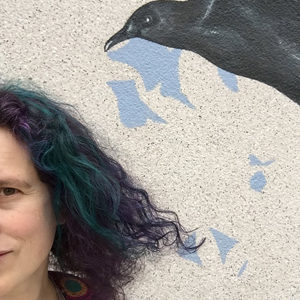
Gayle Brandeis is an award-winning author of fiction, poetry, memoir, and essay—and everything in between. She has a wide body of work, including eight books and numerous essays, short stories, and poems, which have been published in the likes of The New York Times, The Washington Post, O, The Oprah Magazine, Salon, The Rumpus, The Nation, and The Mississippi Review. She has a collection of essays Drawing Breath coming out in February 2023 and several other books in the works.
In addition to her writing, Gayle is also a wonderful and generous teacher. I’ve been fortunate to have attended several of her seminars while an MFA student at Antioch and have since taken several amazing workshops she’s offered on Zoom.
(I’d like to call special attention to one that’s upcoming on Saturday March 5: Embodying the Aging Body: A Writing and Soul Workshop for Women that Gayle’s leading alongside her long-time friend and celebrated author in her own right Laraine Herring! Gayle and Laraine’s workshops are like no other I’ve attended—they include meditations, craft talks, generative prompts and sharing. Click on the link to sign up. I’ll be there—will you?)
I hope you enjoy our conversation! I know I did!
Diane: Hi Gayle. It’s wonderful to see you. I’m so grateful that you agreed to do this interview.
Gayle: Aw, it’s such a joy to see you. And I’m so grateful for the chance to sit and chat for a while.
Diane: Let’s jump right in. We met several years ago at Antioch. I was so impressed by your writing and the way you led your seminars and workshops. You were always inclusive and interesting, and you always expressed interest in everybody, their work, and ideas. You are open and encouraging and have the most wonderful energy.
Gayle: Thank you so much.
Diane: Let’s talk about your wide body of work. Are you still writing fiction?
Gayle: I do write fiction still. I go through seasons where certain genres want to come through me more than others. Early last year, I started writing a bunch of short stories, which I hadn’t done for years. It’s a form I played with a lot around the time I was getting my MFA, which was 20 years ago. For some reason, there was a flood of them last year, which was great fun. It was like meeting an old friend and getting to know them in a new way. (Here’s the link to “The Navel Gazer,” the most recently published of Gayle’s short fiction.)
Diane: Oh, I love that.
Gayle: I’m honestly not sure I’ll ever write a traditional novel again because my brain just hasn’t been in that space, but who knows, a story might grab me and decide it wants me to write it. I certainly wasn’t expecting this flood of short stories, so who knows what’s on the horizon!
“The Project Tells Me What It Wants”
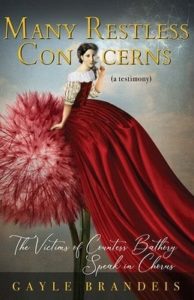 Diane: Your latest book Many Restless Concerns is a book of poetry.
Diane: Your latest book Many Restless Concerns is a book of poetry.
Gayle: Yeah. It’s a novel in poems. A hybrid.
Diane: How do you decide in which genre you’re going to write?
Gayle: I don’t know if I’m the one who decides. I feel like the project tells me what it wants, which is hard to explain. It’s really a matter of listening to the project as it evolves and getting a sense of what would be the right form, shape, genre for it. Generally, the project will give me clear indications that it wants to be one thing over another. Although sometimes I get surprised, like right now I’m working on what I thought was going to be just a bunch of prose poems about the weekend that Marilyn Monroe spent in Lake Tahoe where I live just the week before she died.
Diane: Oh, wow.
Gayle: I’ve been here for seven years, and it’s been hard for me to figure out how to write about this place because it’s so majestic and, even seven years in, I still feel so new to it. I’m still learning all the flora and fauna and the rhythms of the year, which do change from year to year given climate change. It felt too big to write about, somehow. But when I learned that Marilyn Monroe had spent her penultimate weekend here, something clicked, and I started writing these short prose poems about the area through her eyes or how I imagined she would see things. I thought it was just going to be prose poems, but it’s turning into something weirder and more experimental. I’m still not quite sure what form it wants to take but sitting with it and I trust it will guide me where it wants to go.
“I Love Being Surprised by the World”
Diane: Or Marilyn will, right? I think that is such an amazing premise. How do these projects grab your attention, even before you get to the form?
Gayle: It’s different for each one. Usually, a project will come to me out of the blue. An idea will pop into my head, often inspired by something I’ve read or overheard or sometimes an image will just come to me and I don’t know where that image wants to lead me, or a voice will come to me and I’m not sure where that voice wants to lead me. It’s different with different projects and often there’s a very twisty turny evolution until I find the rightful form for a piece.
Diane: In order for that to happen, you have to be listening. You have to be open.
Gayle: That’s the heart of my work–staying as open as I can. That means my heart, my mind and also my senses, because sometimes I smell a little trigger, a memory that wants to turn into something or a taste or just a little snippet of music.
I love being surprised by the world. And I love to stay open to wonder and wondering and stay in the moment as much as I can, although my mind will go into anxious spirals and make it hard for me to be in the moment.
Diane: Yeah. It’s been hard with COVID You had COVID, right?
Gayle: It wasn’t ever properly diagnosed because it was in the early days when testing wasn’t available here, but it feels pretty clear that’s what it was, especially since I’ve had lingering long COVID symptoms.
Photography Helped Keep Me Open … When My Voice Was Trapped Somewhere Inside of Me
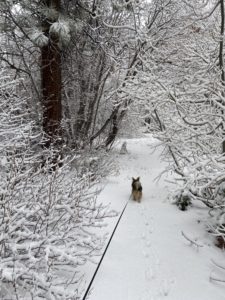 Diane: Is it harder to stay open in these divisive times?
Diane: Is it harder to stay open in these divisive times?
Gayle: Yeah. There’s so much difficult, confusing stuff to process, and I can get stuck in my head over those things. The saving grace for me has been walking my dog in the little woods by our house. When I’m walking out there, I’m able to be in the moment and notice how the forest changes from day to day. That’s really kept me sane during the pandemic. It’s been my touchstone. When we had wildfires last year and I couldn’t spend as much time outside, I spiraled into a bad place in my head, and started feeling hopeless, which is not my normal state of being. I tend to be quite a hopeful person.
Diane: I love your pictures on Instagram of that space. (The photographs in this post are Gayle’s.)
Gayle: Photography has been an important creative outlet for me during the pandemic. While I was sick and in the months when I was recovering with long COVID, it was hard to write. I didn’t write much last year. I wrote a few little things, but nothing that I could really immerse myself in fully. Photography helped keep me open, helped keep my senses open, helped give me a sense of creative satisfaction and engagement with the world when my voice was trapped somewhere inside of me.
Diane: I’m glad you found that.
Gayle: I’m so grateful for it.
“Novels Were the Things That Grabbed Me by the Throat and Demanded My Time and Energy”
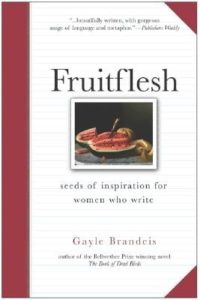 Diane: Animals are important to you, and you lead some animal-writing workshops, one of which I took.
Diane: Animals are important to you, and you lead some animal-writing workshops, one of which I took.
It came at the best time for me. It was so wonderful. Can you talk a little bit about animals and writing?
Gayle: It has been so much fun for me to explore this animal idea I’ve carried inside of me for so long. My book Fruitflesh: Seeds of Inspiration for Women Who Write came out in 2002, almost 20 years ago. It looked toward the plant world as a source of inspiration, for writing our juiciest writing, tapping into our bodies. I had the idea all the way back then that I would follow that book up with an animal book, looking toward the animal world for sources of inspiration. Somehow it just wasn’t the right time to engage in that project. Novels were the things that grabbed me by the throat and demanded my time and energy then.
But I always kept the idea filed away in the back of my head. And I guess it was almost three years ago now, it just caught fire inside of me again. I started doing a lot of research about animal behavior, thinking about animals and how the instinctual way they move through the world could teach us a lot about writing. What if we could write with the same authenticity, instinct, and embodiment as animals? They know how to take care of their young and feed themselves. They don’t have to look at self-help books or anything like that.
The Art of Misdiagnosis, Which Is Centered Around My Mom’s Suicide Was the Hardest Book I’ve Ever Written and the Most Meaningful
They know just the right way for their bodies and beings in the world. I started pouring myself into animal behavior research. And I realized I didn’t have a lot of firsthand experience with animals myself as someone who has a ton of allergies. I realized if I’m going to be writing about animals and writing like animals, I need to have more direct experience with animals. So I started looking into dogs that were less allergenic and ended up rescuing this little Morkie puppy Pepper almost three years ago.
Watching the way she plays, watching the way she digs and sniffs and just follows her curiosities. I don’t know if I want to call her a muse, but a source of inspiration for me. And reminding me too, that we need to both rest and play and just take care of ourselves, ask for belly rubs.
Diane: And enjoy our food.
Gayle: I’m teaching a longer, an animal class through Fine Arts Work Center, and I’m diligently working on the book called Write Like an Animal. Finally, 20 years later.
Diane: Whenever it happens, right?
Gayle: Even if it takes its own sweet time!
Diane: So you mentioned your mother. Do you want to talk about your beautiful book?
Gayle: Sure. I am happy to talk about that. The Art of Misdiagnosis, which is centered around my mom’s suicide, was the hardest book I’ve ever written and the most meaningful. In some ways it ruined me as a writer because once I finished it, I thought, how am I ever going to write anything else that feels as urgent or as important to me?
“There Were Many Times When I Had to Literally Ground Myself–Lie Down on the Floor and Remember I’m Right Here Right Now”
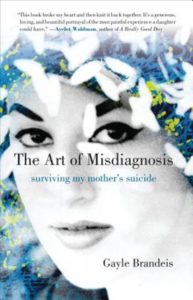 Since then, thankfully, writing has felt important and urgent, just in a different way. Writing it was so painful. There were many times when I had to literally ground myself– lie down on the floor and remember I’m right here right now. I’m safe, the earth is holding me, that I can take a deep breath and bring myself back into the moment because writing trauma can reopen our trauma. It can be so cathartic too and just help us release so much pain and fear.
Since then, thankfully, writing has felt important and urgent, just in a different way. Writing it was so painful. There were many times when I had to literally ground myself– lie down on the floor and remember I’m right here right now. I’m safe, the earth is holding me, that I can take a deep breath and bring myself back into the moment because writing trauma can reopen our trauma. It can be so cathartic too and just help us release so much pain and fear.
Diane: How much distance was there between the suicide and the writing?
Gayle: I started writing it in earnest about a year and a half after her death. It was hard to find my way into it. I’m grateful that there was something in me that knew I should take notes during the time of her disappearance. And after we got the word of her suicide, I kept notes in a journal knowing that someday I would have to write about it.
Diane: And you just gave birth.
Gayle: I had just given birth. She disappeared three days after I gave birth and then took her life a week after I had given birth. I don’t know what it was in me that had the presence of mind to take these notes, but I’m so glad I did because grief can really mess up our memory. Childbirth can mess up our memory. And thankfully I wrote down just some of the details so I could refer to them when I was ready to write.
“In Some Ways, Compassion Is Harder Than Anger Because It Hurts More, But It Also Hurts in a Way That Feels True and Loving”
The fresh grief, having a new baby, those made it hard to get into the writing for a while. My mom had told me not to write about her while she was alive, which to me gave me permission to write about her after she was gone. But I still felt censored by her for a while. She had such power over me in a lot of ways. It took me a while to really give myself permission to write about her with open eyes.
Diane: You talk about the difficulty of writing trauma, but it can also be very healing. Did you find that writing the book healing?
Gayle: It was incredibly healing, as hard as it was. It transformed my relationship with my mom and allowed me to feel compassion for her and find forgiveness towards her.
Diane: I have the chills, goose bumps, as you say that. It’s so clear through the pages and the book is such a beautiful tribute to her, as a flawed person, but hey, aren’t we all?
Gayle: That’s for sure. I think writing really helped me appreciate her. I don’t think I have allowed myself to see how amazing she was because our relationship was so complicated and I had a lot of anger toward her even when she was still alive. And especially after she died, I think it’s pretty common to feel anger after someone takes their own life. Writing helped me burn through that anger to get to that place of compassion. In some ways, compassion is harder than anger because it hurts more, but it also hurts in a way that feels true and loving.
“He Gave Me His Blessing, Even Though the Piece Exposed a Very Painful Part of Our History”
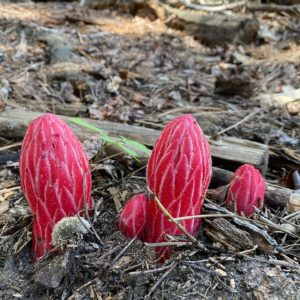 Diane: That’s so true. It’s an incredibly honest book. In everything you write, you go for it, which brings me to your Modern Love piece. Yay, you got a Modern Love!
Diane: That’s so true. It’s an incredibly honest book. In everything you write, you go for it, which brings me to your Modern Love piece. Yay, you got a Modern Love!
Gayle: Yeah. That was always sort of a goal of mine. And I had submitted six different essays that were rejected before this was published.
Diane: I have three written—all rejected—but who’s counting. We’re going to talk about perseverance in a minute, but can you briefly say what the Modern Love piece was about?
Gayle: Sure. The piece was about when my husband and I were separated. I had developed a very unhealthy obsession about another man and blew my marriage up. Looking back, I see now how that was part of my grieving process and I was feeling alive through this obsession.
Diane: That’s common too. That’s really common.
Gayle: It was really scary especially because I hadn’t told my husband I had written the piece before I submitted it. I had to make sure he was okay with it. And thankfully he’s been so generous.
Diane: That’s wonderful.
Gayle: The piece is very much about our reconciliation. I’m incredibly grateful for his patience with me and his forgiveness and love. He gave me his blessing, even though the piece exposed a very painful part of our history. I braced myself for trolling, but amazingly, I only had one issue on Facebook when someone wrote a very nasty comment all in capital letters when I shared the piece. I ended up blocking that person because I just didn’t want to open myself up to that kind of harassment. The response overall was so generous, and I heard from several readers who’ve had similar experiences.
“Audre Lorde’s Phrase, ‘Your Silence Will Not Protect You” Has Been a Guiding Light for Me”
Diane: That’s what I was going to say. It’s extremely courageous to expose the parts of you that you’re not the most proud of. It gives others permission to do the same. You showed how we are all flawed and we can grow from mistakes. And I’m sure your relationship is much stronger for it.
Gayle: Oh yeah. So much more.
Diane: It’s like a teaching piece and it gives people permission …
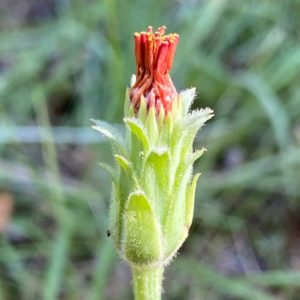 Gayle: That’s so kind of you to say. I only am able to do that because of writers who came before me, who gave me that same permission and who showed courage on the page.
Gayle: That’s so kind of you to say. I only am able to do that because of writers who came before me, who gave me that same permission and who showed courage on the page.
Diane: So tell me who, who are your mentors? Either in life or on the page.
Gayle: Audre Lorde has been incredibly important to me. Her phrase, “Your silence will not protect you” has been a guiding light for me.
Diane: I just got the chills again.
Gayle: Yeah. Her work has influenced me so much. Roxane Gay’s work has been important to me. Her piece “What We Hunger For” that came out in The Rumpus many years ago is so stunning. Leslie Jameson’s work has really inspired me. There are so many. In terms of in-person mentors, Alma Luz Villanueva was one of my mentors at Antioch. Her work was so liberating for me, her teaching, so visionary. There are so many more than I could say. But one thing that I really have appreciated too is Brene Brown’s Ted Talk on vulnerability.
Diane: Oh boy. It’s one of the top 10 most viewed Ted Talks ever.
“It’s Kind of Wild to Me That I Ended Up Becoming a Writer Who Is So Open on the Page Because as a Young Person, I Was So Secretive.”
Gayle: One of the things she says, which I use a lot in my own teaching, is that an early definition of the word courage is to tell one’s story with all one’s heart. That’s the sort of courage we need as creative nonfiction writers—to tell our truth with all our heart.
It’s kind of wild to me that I ended up becoming a writer who is so open on the page because as a young person, I was so secretive. I remember one time in college feeling my heart pound when telling someone I hadn’t shaved my legs in two weeks, as if it was a revolutionary to say that out loud. Just talking about my body was really scary for me at the time. I’m grateful that so many writers have given me that courage, allowing me to accept my full self and not feel like I have to hide parts of myself away in order to look like the good girl. When we can share our full humanity, it’s a much better way being of being bold.
Diane: That’s beautiful. Tell me about teaching for you because you help others do the same. What does teaching mean to you?
Gayle: I love teaching. And again, that’s something that was a happy surprise because as someone who is very shy and quiet and had trouble speaking in front of people, I never thought I would feel comfortable talking to a class or an audience. It’s been a great gift and surprise to learn that teaching’s such a joyful experience for me. I feel my main job as a teacher is to give students permission to write whatever it is they want and need to write, to embrace, to use one of my dad’s words, their own weirdidity.
“I Felt Like I Needed to Give These Girls and Women a Voice”
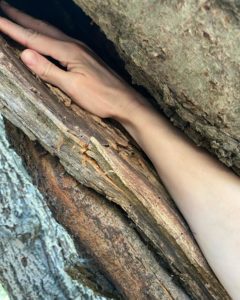 Diane: Oh, I like that.
Diane: Oh, I like that.
Gayle: It’s such a great word! That’s what makes our writing come to life–when we share our own unique way of experiencing the world. Meeting students where they are is important to me, trying to help their work become as full of self, not imposing my own aesthetics, but trying to get a sense of what the work wants to become. And helping students get out of their own way.
Diane: Tell us about your novel in poems.
Gayle: Sure. This is a book I couldn’t have anticipated writing. It’s much gorier than anything I thought I’d ever write. You asked earlier about the sparks behind projects. When my daughter was a teenager, around the time I was pregnant with Asher, she was really fascinated with notorious women in history and would ask for various books about women pirates or other outlaws. She had this one book I was skimming through out of curiosity and found this chapter about the Hungarian Countess Bathory in the 17th century, who was accused of killing hundreds of girls and women.
I couldn’t stop thinking about it—less about her than about all girls and women she had killed (allegedly up to 650) because that’s so much silencing of so many voices and lives. I found very little had been written about her victims. There’s a lot written about her. Some of it eroticizes her and the murders or is just written as straight horror. I felt like I needed to give these girls and women a voice. I thought I was just going to write a few poems, a small cycle of poems, but once I started, I couldn’t stop. There were so many voices that wanted to be heard.
“I Felt Ready to Write About a Bigger Grief”
Diane: The voices spoke through you?
Gayle: Yeah. Especially the collective voice—so much of the book is in the “we” voice, and I feel like they had to speak together, to collect their power, because they were so powerless in life. Most of these girls came from very poor households and didn’t have many choices in life. But together, after death, they were able to find power and agency. The book shifted in form a lot from where it first started. It was, again, a matter of listening to each piece and seeing what format it wanted to take.
Diane: Was that fun?
Gayle: It was fun in many ways, though it was a painful book to write, too, because I had to read about all this horrible torture and murder. I started writing this when I was pregnant and realized that writing about murder and torture while pregnant was not the best thing for my own wellbeing and the baby’s wellbeing. I set it aside and then of course my mom took her life right after his birth. The memoir took a long time, and I kind of forgot about this project when I was in the midst of that one.
Then when I was in that place of feeling so lost after I finished the memoir, I remembered this ghost girl project and decided to open the files again, and it felt so alive to me and sucked me right back in. I had just spent so much time grappling with my own grief, I felt ready to write about a bigger grief. And it felt like an act of justice to give voice to these girls and women who had been silenced all these centuries ago.
“87% of the Faculty Voted Yes on the Union”
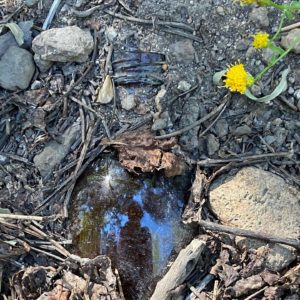 Diane: Isn’t it fascinating how, when the timing’s right, things come together?
Diane: Isn’t it fascinating how, when the timing’s right, things come together?
Gayle: Yeah, definitely.
Diane: We just have to trust that.
So what about the Antioch union?
Gayle: Oh, that’s so exciting. Several months ago, I got an email from a colleague in the MFA program asking if I’d be interested in helping to organize faculty union at Antioch.
As someone who has been involved in a lot of progressive causes over the years, I love what unions have done. Unions have been at the forefront of so many social justice movements. So of course I said yes and became a member of the organizing committee. We have Antioch campuses all over the country. Our Seattle campus had successfully unionized a few years ago, the only Antioch campus to do so. Across campuses, faculty members realized we should all have a collective voice and use our voices together in power to ask for better benefits, for better working conditions, which will benefit our students and give us a seat at the table.
Diane: Was there a lot of pushback?
Gayle: Surprisingly so, actually. Our chancellor was very anti-union, which was shocking given the fact that Antioch is a social justice focused school. One would think that the leadership of the school would be open to faculty unionizing and having that voice and agency together. But he bombarded us with anti-union propaganda.
Diane: Wow.
Gayle: We weren’t able to reach out to faculty over the Antioch channels as union organizers. I was worried that the people we couldn’t find contact info for would only be getting this anti-union propaganda. But I think people saw through it and 87% of the faculty voted yes on the union.
Diane: Oh, that’s wonderful.
“I Was So Happy to Turn 50, I Think Because My Forties Were So Tumultuous”
Diane: Has life changed for you since you turned 50? Was that a marker?
Gayle: I was so happy to turn 50, I think because my forties were so tumultuous. That’s when I gave birth to my youngest and my mom died. Actually, both my parents died when I was in my forties. It’s also when I blew up my marriage and had major surgery with a difficult recovery. There were plenty of good things within that decade too, of course, but it just felt really nice to be on the other end of it.
And for my 50th birthday, my brother who lives in Shelter Island, New York, opened his home to the family. All my siblings were able to gather and significant others and some of my nieces and nephews. It felt so nice to be with family, have it be a quiet, meaningful transition into this new decade.
Diane: Do you see any internal shifting?
Gayle: Let’s see if I can articulate this. I feel a lot less ambitious. I’m more creatively ambitious in terms of wanting to keep pushing my own personal envelope. I want to keep growing and being even more courageous in my writing and letting it get as weird as possible. I feel a commitment to that, but I also feel less of a need for any sort of external validation for that.
Diane: It’s a freedom, isn’t it?
“A ‘No’ Doesn’t Mean That I’m a Bad Person or a Bad Writer. A ‘No’ Just Means It Wasn’t Right for That Particular Place at That Particular Time”
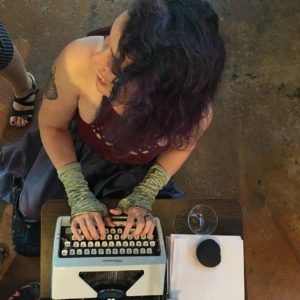 Gayle: It’s very freeing. Caring a lot less about what people think is a great gift of aging. That’s definitely been an internal shift for me. I do have another book coming out. A collection of essays is coming out in 2023. There’s the animal book. I’m working on this Marilyn Monroe project. It’s possible I’ll have other books in the world too, but I also feel it won’t be some great tragedy if I don’t finish these books or they never get published.
Gayle: It’s very freeing. Caring a lot less about what people think is a great gift of aging. That’s definitely been an internal shift for me. I do have another book coming out. A collection of essays is coming out in 2023. There’s the animal book. I’m working on this Marilyn Monroe project. It’s possible I’ll have other books in the world too, but I also feel it won’t be some great tragedy if I don’t finish these books or they never get published.
Diane: Let’s talk for a minute about perseverance, because it can be a tough road as a writer. You have to keep putting your writing out there in face of “no, no, no, no, no.” How is that for you?
Gayle: It really has to do with believing in ourselves as writers, believing we have something to say and unique ways of saying it. I find that rejection used to hurt a lot. Now I still will feel a little sting, but it goes away quickly. Being on the other end of the table, editing journals or judging contests, has helped me see that a lot of good work gets rejected and also that a lot of people send out work before it’s ready, which I am guilty of doing sometimes, too. A “no” doesn’t mean that I’m a bad person or a bad writer. A “no” just means it wasn’t right for that particular place at that particular time. There can be many reasons for that.
Diane: Can you talk a little bit about your journal?
“When I Was 18, an Essay I Wrote Was Put in the Time Capsule of the Statue of Liberty”
Gayle: Sure. It’s been on hiatus since last spring. I’m hoping to reenergize it. I founded Lady/Liberty/Lit right after Trump was elected because I felt like I needed to do something. I thought maybe creating space for other voices, women and non-binary or women-identifying voices could help counter the horror that the presidency was going to bring forth. It’s been incredibly gratifying. I stopped being able to handle it last year because I was sick. I had a lot of brain fog and still have a bit and have not found my way back into reviving it, but I will. I’m committed to reviving it.
The name for the journal came about because when I was 18, an essay I wrote was put in the time capsule of the Statue of Liberty. At the time at the Statue of Liberty Centennial Ceremony, they named me and the other teenagers—three American teenage writers and three French writers–Stewards of Liberty for the next 100 years, which was kind of an intense title to be given as an 18-year-old. I didn’t really take it seriously, but I was thinking, okay, if I’m going to be a steward of Liberty, let me steward forth other voices that are writing freely. So, so gratifying to work on that and I look forward to starting it up again.
Diane: Are you still putting together the anthology By One’s Own Hand?
Gayle: It’s put together. My agent has been trying to find a home for it. It’s writings about suicide loss. That was really gratifying to put together. After my mom’s death, reading about suicide loss really helped me know that it’s possible to survive such a loss.
“I Still Find Myself Having Internalized Certain Patriarchal Ideas”
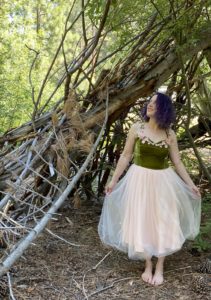 I essentially wanted to put together the book that I needed at that time. And hopefully it will find a home. We had a lot of editors who love it, but there’s a lot of previously published work that will require permissions fees and stuff like that. So we haven’t found a publisher willing to take that on yet.
I essentially wanted to put together the book that I needed at that time. And hopefully it will find a home. We had a lot of editors who love it, but there’s a lot of previously published work that will require permissions fees and stuff like that. So we haven’t found a publisher willing to take that on yet.
Diane: One last thing, do you have advice for women, women over 50?
Gayle: Oh my goodness! I would say try to speak or write your truth. There are so many expectations of what it means to be a woman in the world. And a lot of those are patriarchal ideas that tell us we need to stay quiet and agreeable and just take care of people and put ourselves last. I think trying to push through those layers of programming, to be able to hear the truth inside of our bodies and then give voice to it is so important. I still find myself having internalized certain patriarchal ideas. As open as I am as a person and as a writer, it’s still sometimes hard for me to say when something’s bothering me or to share my pain with people in my life.
“Listen to the Truth of Our Bodies and Speak or Write Your Truth as Best You Can”
I have to nudge myself past those internalized lessons. Because when I do share my truth, it helps those around me be closer to me. We can connect on a truer level. Those things you’re holding inside, find a way to release them, even if it’s just on the page and no one will ever see it. Listen to your body too. Our bodies are so wise and will tell us when something’s wrong. Not just in terms of illness but when we’re in a bad situation.
Listen to the truth of our bodies and speak or write your truth as best you can.
Diane: Thank you. This has been wonderful, Gayle. It’s such a pleasure always to see you and to have this time to talk with you has just been fabulous, really.
Gayle: Thank you. The feeling is so mutual. I just adore you and I’m so grateful for the chance to speak with you. Thank you from the bottom of my heart.
If you want to learn more about Gayle Brandeis, please visit her website.
You can also follow her on Twitter and Instagram @Gaylebrandeis and on Facebook. And here’s a link to all her books via Bookshop.
As always, I’d love to hear your thoughts! Please leave a comment or send an email–and feel free to share on social media!
See you in March!
XOXO
Diane

If You Know Another Amazing Woman (Or Person Of Any Gender!) Who Might Like To Join Us At WomanPause, Please Forward This Link: WomanPause
For one-on-one support in uncovering your voice on the page, please consider working with me! I’d love to join you on your journey!


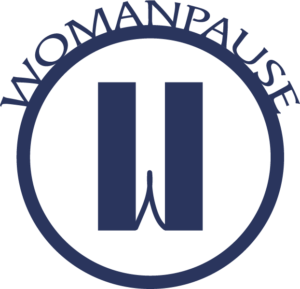
Such a good interview. Gayle is an original.
Thank you Greta! Gayle is an original–as are you, my friend!
Another good interview Diane thankful for the insights of this amazing person. Gayle is unique, honesty is not easy to come by. I am interested in hearing completely different voices than mine. Opening up to our vulnerability, trust and biases is eye opening. Connections can somehow be made even with people we don’t agree with. Humanity begins with me and a open heart ❤️
So wise, Dorothy! That open heart can be such a bridge! I’m glad you appreciated Gayle’s insights and honesty. She is an amazing person, as are you!
I was fortunate enough to be in a workshop with Gayle during my last semester at Antioch. I had hoped to meet her the whole time I was there because she had such a wonderful reputation. She’s one of those people who turns out to be just as genuine, deep, and brilliant as you imagine.
This interview reminded me of my experience in her workshop which was the best experience I had at Antioch. She elevates the creative energy in those around her. This was early 2020 she didn’t feel well and now I see that she likely had COVID. Even ill, she was the best workshop leader ever.
Thank you, Diane and Gayle. I loved every word of this! Now to go back and savor it a second time.
Thank you, Sherry, for sharing your workshop experience with Gayle. She truly is “one of those people who turns out to be just as genuine, deep, and brilliant as you imagine”
I loved learning more about Gayle, her writing process & her projects. Fruitflesh is so inspiring. I haven’t read The Art of Misdiagnosis Yet, but it’s waiting patiently on my bookshelf. Thank you for interviewing her & sharing her wisdom with us 🙂
Thank you Sarita! I loved learning more about Gayle too–she truly is an inspiration! You will love The Art of Misdiagnosis.
She is so full of life! Thanks for sharing.
Thanks for reading, Nicky!!
Wonderful interview – so fascinating, and so much resonates with me in terms of process and inspiration (everyone she names, I also love). And: weirdidity! Love this.
Oh, Alison! Thank you! An I am not surprised that so much resonated with you! I think you two are definitely kindred spirits!! And weirdidity–right!?!
I so enjoyed reading this interview!!!
I’m soooo glad, DeAnna! And thanks for letting me know! Speaking with Gayle was a great joy!